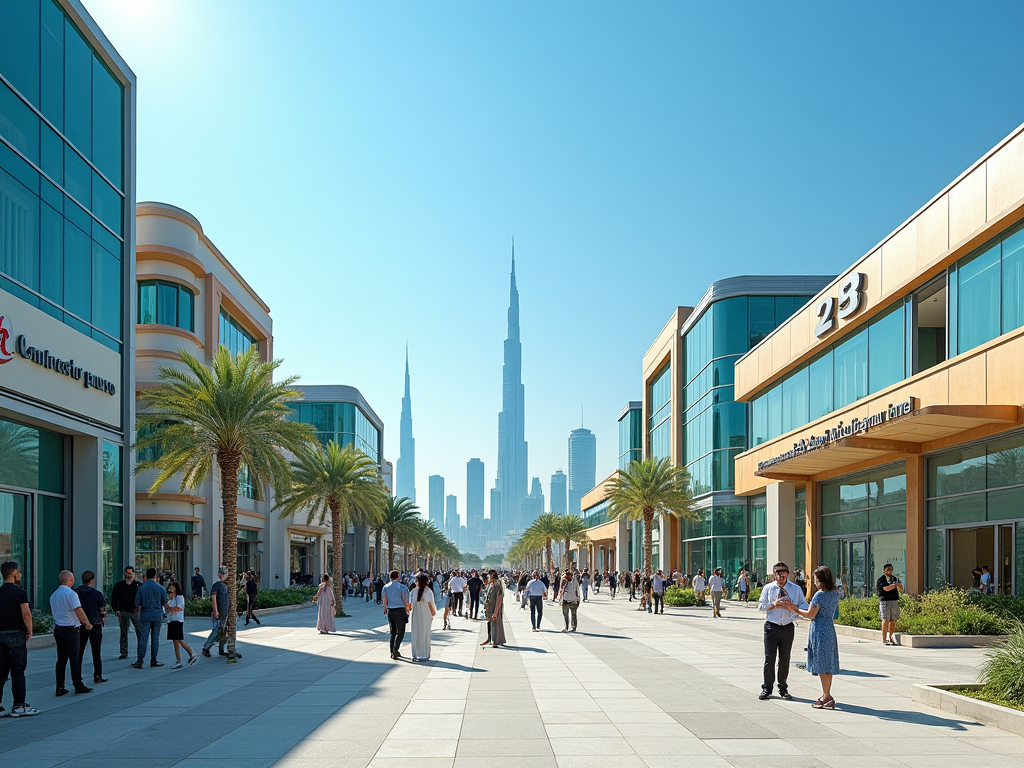The free zones in Dubai serve as pivotal facilitators of residence visas, enabling expatriates to establish their businesses and reside in the emirate. These zones provide a host of benefits that streamline the visa application process, making it attractive for foreign investors and entrepreneurs. Understanding this unique relationship between free zones and residence visas can help potential residents navigate the complexities of the Dubai immigration system more effectively.
Understanding Free Zones in Dubai

Free zones in Dubai are special economic areas that offer various incentives aimed at attracting foreign investment. Established to enhance Dubai’s economic profile, these zones provide a framework for businesses to operate with minimal restrictions. Each free zone has its specific regulations tailored to different sectors, ensuring that investors can find an environment that suits their needs. Here are some key features of free zones:
- 100% foreign ownership
- Full repatriation of profits and capital
- Exemption from import and export taxes
- No personal income taxes
- Flexible visa options for employees and dependents
These features not only entice investors looking to set up businesses but also create a conducive atmosphere for obtaining residence visas.
How Free Zones Facilitate Residence Visas

One of the most significant advantages of operating within a free zone is the streamlined process for obtaining residence visas. Free zone authorities often have dedicated departments to assist investors in acquiring their visas as part of the business setup process. This seamless integration reduces the bureaucratic hurdles typically associated with visa applications. The residence visa granted through a free zone is typically valid for three years and can be renewed. The steps generally involved in obtaining a residence visa through a free zone include:
- Choosing the appropriate free zone based on your business activity.
- Registering your business and receiving a license.
- Applying for a residence visa for the investor and employees.
- Processing the visa application through the free zone authority.
- Completing required medical and security checks.
The entire process is designed to be efficient, with many free zones offering assistance and guidance to their clients.
Benefits of Securing a Residence Visa in Free Zones
Acquiring a residence visa through Dubai’s free zones comes with several benefits tailored to expatriates and business owners. Firstly, the flexibility offered allows visa holders to sponsor their family members, enhancing the appeal of relocating to Dubai. Secondly, residence visas obtained through free zones often provide holders with access to various services and amenities, including healthcare and education, which may be limited to those outside the free zone ecosystem. Moreover, the visa process is simplified and often quicker compared to traditional routes. The benefits can be summarized as follows:
- Ability to sponsor family members.
- Access to attractive lifestyle and business opportunities.
- Fewer restrictions on business operations.
- Rapid visa processing times.
- Networking opportunities within the zone’s community.
These advantages combine to make free zones an appealing choice for expatriates looking to settle in Dubai.
The relationship between free zones and residence visas goes beyond mere bureaucracy; it’s about creating future opportunities for growth and innovation. With Dubai positioning itself as a global hub for trade and commerce, having a business and residence in a free zone allows expatriates to tap into emerging markets and benefit from the growth of the UAE economy. Free zones are often at the forefront of new technologies, from e-commerce to fintech. Businesses established in these zones not only gain a foothold in a rapidly evolving market but also have the potential to expand into other Emirates or global markets. Investing in a business in a free zone means investing in a sustainable future.
Conclusion
In essence, the free zones in Dubai play a crucial role in facilitating residence visas for expatriates. With streamlined processes, attractive incentives, and a range of benefits, these economic hubs invite foreign investors and entrepreneurs to not only establish their businesses but also secure their residency in Dubai. As the emirate continues to evolve and expand its global presence, understanding the significance of these free zones will be essential for those looking to navigate the immigration landscape effectively.
Frequently Asked Questions
1. What are the main characteristics of free zones in Dubai?
Free zones offer 100% foreign ownership, tax exemptions, and streamlined business setup processes tailored to various industries.
2. How long is a residence visa valid when obtained through a free zone?
A residence visa obtained through a Dubai free zone is typically valid for three years and can be renewed upon expiry.
3. Can family members be sponsored under a residence visa from a free zone?
Yes, holders of residence visas from free zones can sponsor their spouses, children, and other dependents.
4. Is the process of obtaining a residence visa different for each free zone?
While the process is generally streamlined, specific requirements and steps may vary slightly between different free zones in Dubai.
5. What types of businesses can be established in Dubai free zones?
Dubai free zones cater to a wide range of businesses, including tech startups, trading companies, manufacturing firms, and services sectors.
